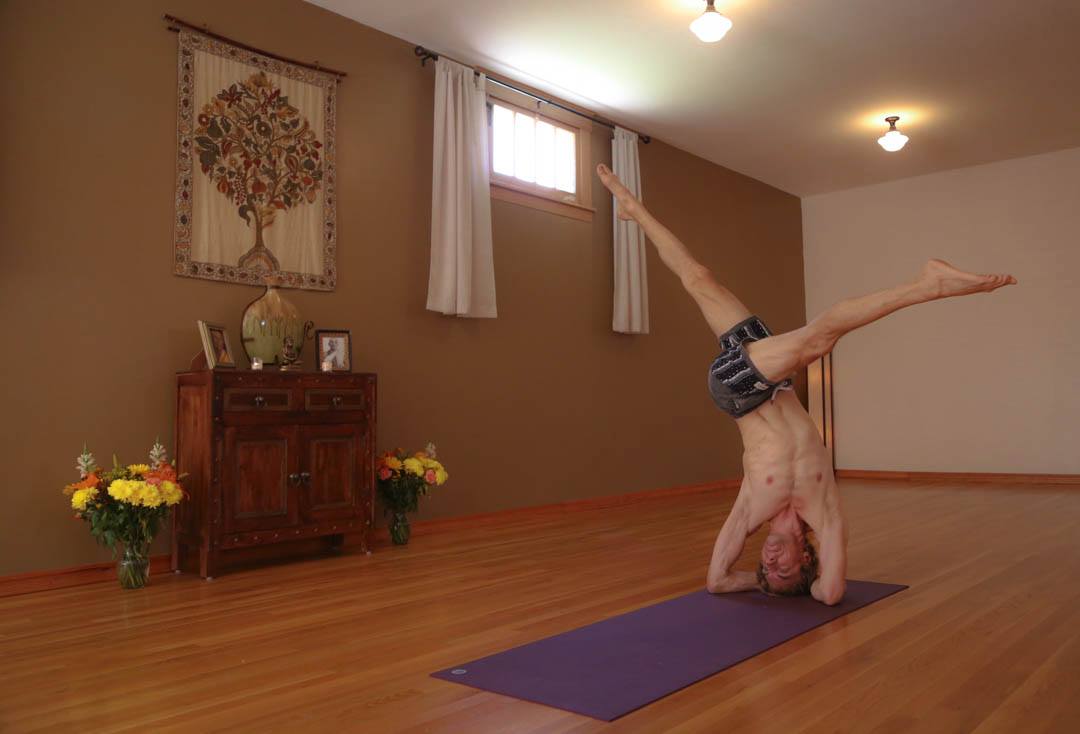

I’m going to tell you a secret about myself. I started practicing Yoga for sport. To stretch my muscles out from running. I taught myself how to practice for devotion.
Bhakti is the only theme of yoga, devotion the only subject, and yoga techniques serve only one purpose- to give you a means of awakening your self to and expressing your yearning to connect with an inner, secret, sacred life that lies dormant within you.
But yet most of us begin practicing yoga without intending to use the techniques for bhakti (devotion) we don’t take to the mat for the purpose of opening ourselves to the inner world of spirit. We begin unconsciously, without necessarily knowing why, and thus without even knowing it we begin with every intention of continuing to wear the suit of armor we’ve built up to protect us from the world so that we can continue to block out our pain and loneliness. And this is because at first, it is difficult, maybe nearly impossible, to face how miserable we feel about ourselves, how overwhelmed by powerlessness and a unshakable sense that this bizarre, chaotic world is simply void of meaning and holds no authentic place for us.
And thus we will tend to attempt to keep our practice on as purely physical level as possible. Limiting our selves to extracting the lesser, though more tangible material benefits from practice like physical fitness, a shapely body, mental focus, superficial inner peace or calm, personal power, or self confidence that is won through performing ‘advanced’ asanas.
But eventually, sooner or later, questions will finally arise: how can I pierce through to that secret, deeper world? What will cause me take off the suit of armor made of fear? And even though there will be dozens more similar questions, fortunately there are many affirming answers to these questions. For starters the in-volutionary process happens naturally, organically, and spontaneously through the simple, repeated act of being exposed to the techniques of yoga.
And as you become skilled in the techniques, they begin to work on you in the ways that they were designed to work on you. It becomes more and more difficult for your ego to hijack the techniques and utilize them for its own harmful purposes. Glimpses and moments of the power and bliss that are part of the other, interior world begin to seep through into your experience during practice. Another purpose and experience of practice begins to emerge. You become less susceptible to striving in the various aberrant ways that block and hinder progress.
Here are some ways to adopt the stance that you practice to express your own experience of bhakti.
A) Your breath is a mantra. A mantra is a ‘magical utterance’, a mind instrument, a sound, a word or set of words that you repeat verbally or silently to yourself to stay in constant remembrance of God. The sound of the breath is known as So’Ham or “I am That” meaning that hidden within my own body and mind is the truth that I am the SELF, the secret, source that binds together everything in existence. So’Ham is divided into two sounds, the aspirant Ha or Ham that you can hear during exhalation and sibilant Sa or So that you can hear during inhalation. With the knowledge of So’Ham you can cease to think of your breath as a purely physical act and instead utilize your breath as a source of bhakti, remembrance.
B) Your posture is a yantra. A yantra is like a mantra only it is visual instrument, a sacred shape used for devotion. Thinking of your posture as a yantra, as a shape that you repeat in order to express devotion is a perfect way to cut through any and all of your lesser idea’s or conceptions of the techniques that make up your practice.
C) The Five Elements that make your body and the surrounding physical world are Gods and Goddesses with divine attributes that can help you attain to devotion in your practice. You can think of your breath as an expression of the god Vayu, whose name means “to blow”. Vayu is the ‘life breath of the gods’, he is a wanderer, explorer and a messenger of the gods. You can use the unceasing rhythm of your breath to wander and to explore your sacred internal realms. Your breath can also serve as a mediator, a link between your unconscious, intuitive, creative depths and your conscious, rational, volitional mind. Vayu is also known for his power and strength, when he takes the notion he can blow down trees, houses, cars or anything else that stands in his path. Your breath, like Vayu can become a primary source of strength for you- especially when you bow down to your breath, remembering the lowly sacred rhythm is a splendid representative of the Divine Source that is your true identity.
Comments
No comments.